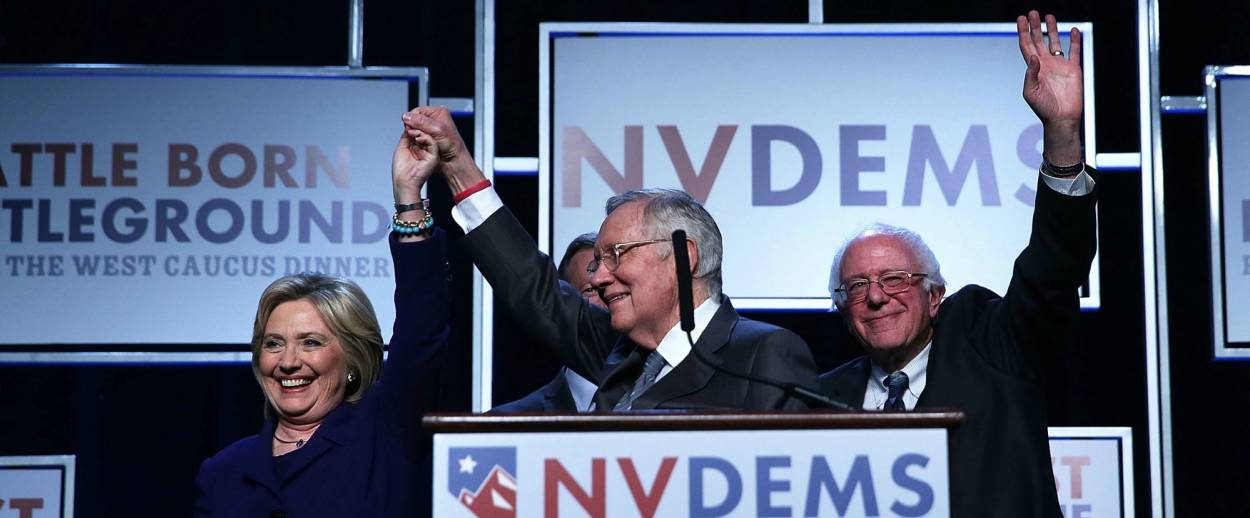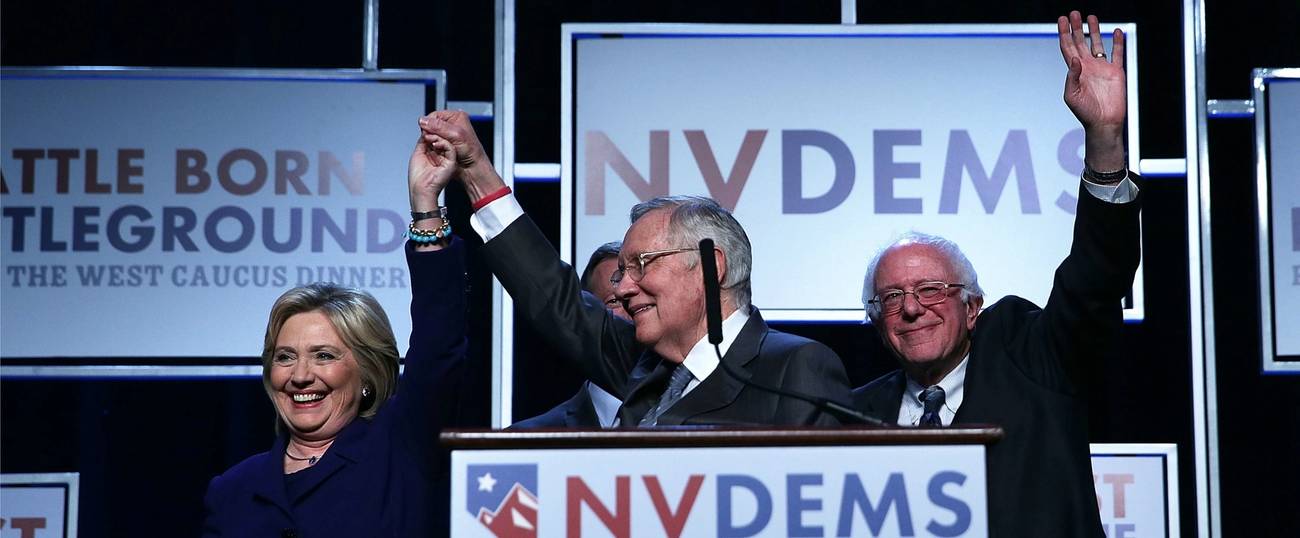On Tuesday night, Democratic presidential contender Bernie Sanders made history with a landslide victory over Hillary Clinton in the New Hampshire Democratic primary. His 60%-38% win, aside from being one of the most lopsided in the state’s history, made Sanders the first American Jew to win a presidential primary. And yet, in just 10 days, in the very next state to vote, the Democratic primary process is slated to disenfranchise many of Sanders’ fellow Jews.
The Nevada Democratic caucuses are scheduled for Saturday, February 20, at 11 a.m.—that is, on Shabbat. Because Nevada, like Iowa before it, selects its presidential nominees through the caucus system—which requires voters to show up in person, argue for their candidates, and then caucus for them—early absentee voting is not an option. As such, Sabbath-observant Jewish Democrats who cannot make it to the caucuses will have no say in what is shaping up to be a historic primary for both America and American Jews.
Nevada is home to over 76,000 Jews, many of them religiously observant, to the extent that several Vegas casinos and hotels feature full-service kosher kitchens. These Jews will be able to participate in the Republican caucuses, which are scheduled on Tuesday, February 23, but not in the Democratic ones—unless, of course, one or both of the Democratic presidential campaigns decide to protest.
Sanders himself is famously secular, but he and Hillary Clinton can surely recognize the message of inclusiveness that would be sent by rescheduling the caucuses, even if just to Saturday evening, after the Sabbath ends. (The recent Iowa caucuses took place on a Monday evening.) This would not require offsetting the entire schedule, either. According to the Las Vegas Review-Journal, in 2012, when the Republican presidential primary fell out on Shabbat, local party leaders ensured that there was a post-Sabbath caucus for those who could not attend earlier due to religious reasons.
Surely both Democratic candidates today, as well as the Democratic National Committee—headed by Florida’s Debbie Wasserman Schultz—recognize the unfortunate message that would be sent by maintaining the current schedule, when viable alternatives exist.

